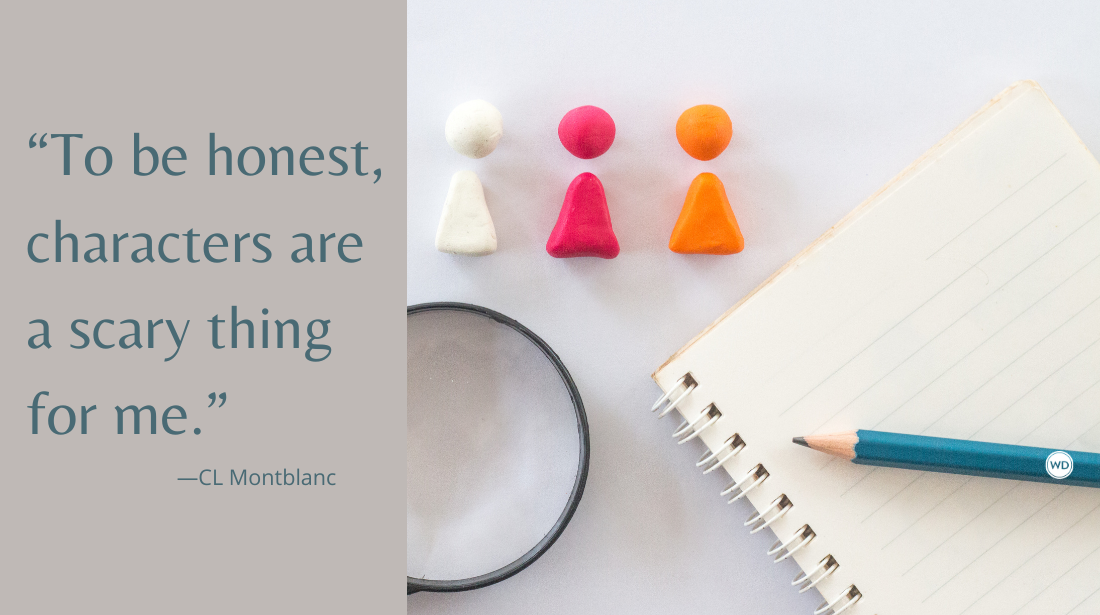How to Write Lovable Assholes: 5 Lessons for Writers From Studying Saturday Night Live
How do you make a difficult character one readers can’t help but to root for? Author Emma Barry discusses how to write lovable assholes with give lessons she learned from “Saturday Night Live.”
It happened at a sleepover. My family had recently moved from Montana to Dallas, Texas, and I felt like the world’s shabbiest country mouse. I was trying to impress a new friend, and so when she suggested we should stay up to watch the coolest show on television, I was on board. If only she could remind me what the coolest show on television was?
“Saturday Night Live,” of course, and for me, it was love at first sight.
I was all of 10 at the time, meaning I understood 20 percent of the jokes. But it was obvious to me that something important was happening on the show, something almost ineffably cool.
I continued to watch “SNL” through the 90s and into the early 2000s. While I rarely watch it live these days, I catch up on YouTube. And so, when I started writing romances, I always knew that I would write a book set on an SNL-like show.
But that posed a problem, because while “SNL” was, is, and will always be cool, comedians can be difficult and even aggressive. Think about the hostile language of comedy. Jokes “kill” when they go over well, but if no one laughs, they’re a “dead” audience. And what happens to your psyche when you write and tell jokes where you’re the object of ridicule?
All of that said, how could I write a comedian character who felt believable—with all that that implies—but who stayed on the “lovable asshole” side of the continuum and not the “just an asshole” side?
When I sat down to write my book Funny Guy last year, I read every history of SNL I could get my hands on. And I noticed a few patterns about who came across as difficult but charming and who came off as simply difficult that might be helpful for writers.
1. Make them an asshole for justice. During the early years of SNL, the cast was famously volatile. Rumor has it that there was at least one fist fight between performers backstage during a taping. But it’s crucial that when your protagonist blows up, they’re defending someone or adhering to a moral code. If their motives are simply selfish, the audience will have less tolerance for their antics.
2. Be careful they don’t go too far. In Live from New York, an excellent oral history of SNL assembled by Tom Shales and James Andrew Miller, Jane Curtain recounts John Belushi telling her that women aren’t funny. First, yawn. But second, there is behavior that’s simply too boorish for readers. Sexism is just one example.
3. When they’re at their most obnoxious, show us why. Look, they aren’t lovable heroes. They’re going to be histrionic and difficult at times. But we have to understand what motivates the drama. Voice is the crucial tool in your arsenal here. If the character is funny, if they’re vulnerable, if we see their history, and if—as a result of all of that—we get why they’re behaving in a way that might otherwise get them kicked out of a nice restaurant, well, we might consider getting on board.
4. They’ve got to laugh at themselves. One thing that came up repeatedly in the histories and memoirs of SNL was folks who wanted to tell jokes about other people, but never wanted to be the butt of anyone else’s joke. To a person, this group came off as self-important, thin-skinned, and mean. Comedy can sting. That it’s potentially dangerous is what makes it funny. So people who want to wield the weapon but won’t turn it on themselves seem like jerks, not amiable jerks.
5. They have to apologize. In Amy Poehler’s memoir Yes Please, she tells a story about an SNL sketch in which she mocked a developmentally disabled child. She was reprimanded by a friend’s wife and in response, Poehler doubled down on the joke before, eventually, apologizing. It’s a fascinating chapter, because Poehler carefully excavates her original mistake and her defensiveness, before considering what they say about her as a person. When your character mucks up, they have to apologize. Sincerely. They have to make amends too. Without that, we won’t be on their side.
I tried to apply all of these lessons to Sam. In the opening chapter of the book, for example, he’s stuck in line at a coffee shop, while over the loudspeakers, his ex-fiancée’s latest hit single—about his childish ways—plays. The couple behind him are giggling and speculating about what’s true in the lyrics. So, Sam buys their coffees before caustically, but I hope hilariously, verbally eviscerating them.
I wanted the outburst to be grounded in Sam’s moral code, even if that code is … atypical. For us to see how hurt he is by the song and by the public’s ridicule, but also that he knows he’s flawed and is willing to laugh at himself. And by the end of the chapter, I want the reader to be invested in his journey.
Whether I pulled it off is another question entirely, of course. But if I did, I have “SNL” to thank for showing me the way.
Emma Barry is a teacher, novelist, recovering academic, and former political staffer. She lives with her high school sweetheart and a menagerie of pets and children in Virginia, and she occasionally finds time to read and write. Find her at AuthorEmmaBarry.com, and on Twitter and Instagram.








